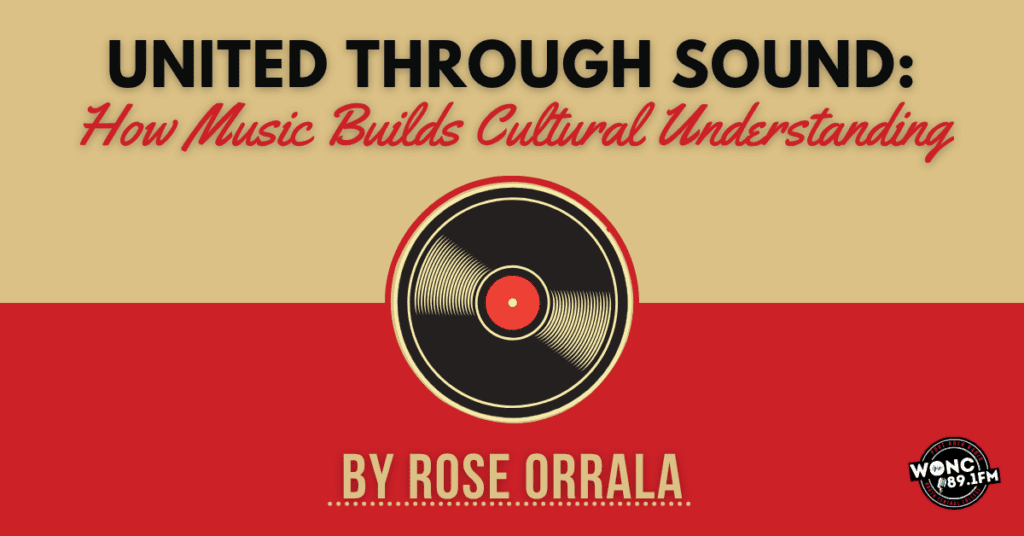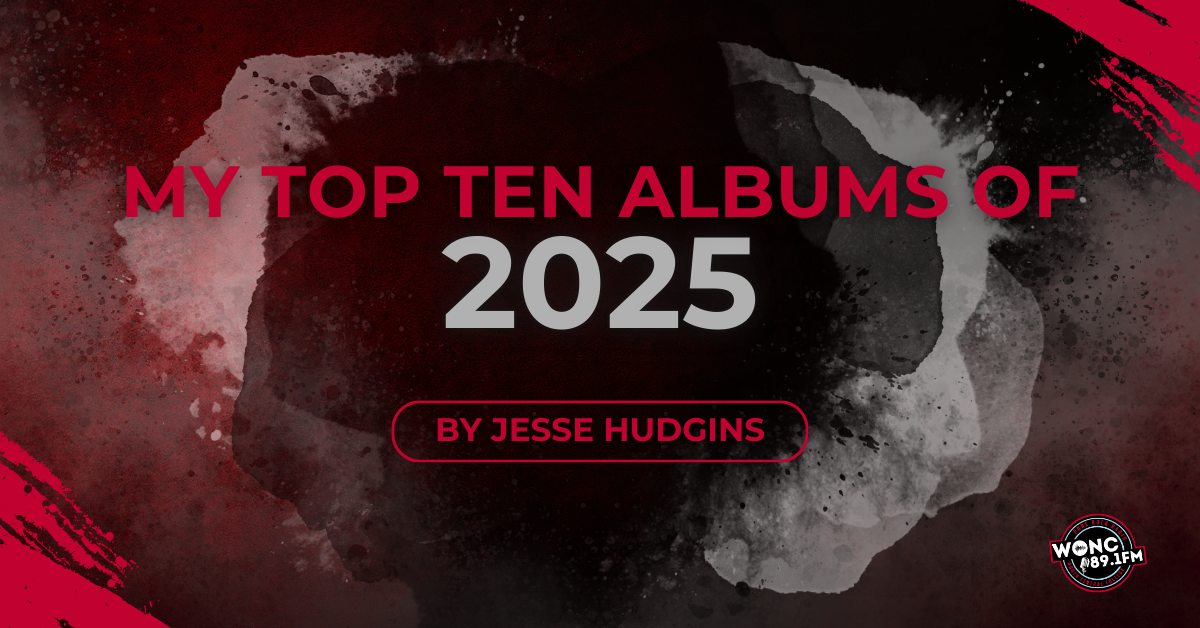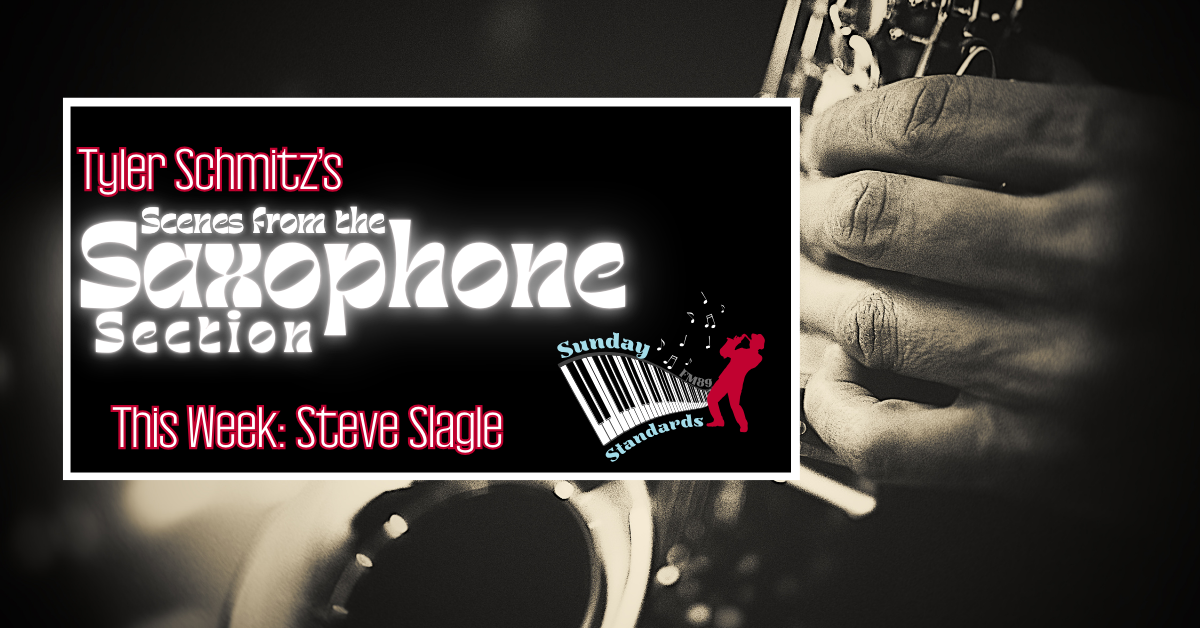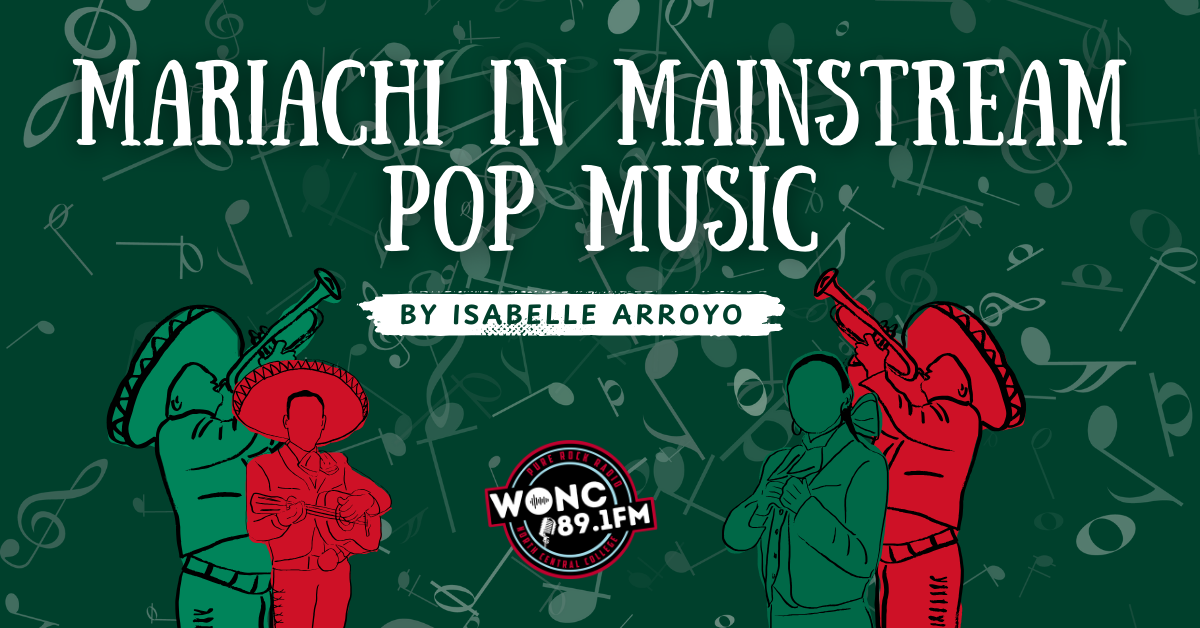by Rose Orrala
Sharing music invites others to explore our inner world. It reveals our values, personal tastes, experiences, and our emotional states. Music reflects our social and cultural backgrounds, playing a key role in shaping our identities. As a first generation Mexican American, I recognize the power that music holds in bridging cultures and creating a sense of unity. I often find the best starting point for sharing my cultural background with others is by sharing our music.
Most recently, I had the privilege of being an on-air guest for WONC’s Flores y Fuego where we discussed Quinceaneras, a Latin coming-of-age tradition. For our listeners, this was a chance to learn about a culture different from their own. For me, I gained a greater appreciation for how radio fosters connection.
However, this requires that those receiving the invitation openly, willingly, and empathetically accept and indulge in the experience. By accepting the invitation, we express a desire to understand, connect, and develop a deeper appreciation for diversity. Not only do we strengthen our personal relationships, but we also improve community well-being by fostering trust, shared values, and mutual support. Additionally, small acts such as diversifying our music libraries can help promote inclusion and reduce social isolation.
This is because music transcends language barriers. In fact, people who listen to music in more than one language not only begin learning the language but develop a more nuanced understanding of cultural differences. Historically, music has been a means of cultural storytelling. It preserves cultural roots and traditions, passing down experiences, memories, and cultural customs. Music also acts as a medium for the exchange of cultural ideas.
When we’re intentional about using music as a tool to enhance our cultural understanding, we build greater connections. As someone who listens to music from several genres and in multiple languages, I can’t emphasize the importance of diversifying our music libraries enough.
If you’re wondering where to even begin, I have a few insights that can help. At the start, you just want to listen to songs you already know in a different language. Naturally, you’ll find yourself attempting to translate the lyrics. This allows room for adjustment and acts as a buffer until you’re ready for the next step.
From this point, you want to find an artist or band you love from a background different from your own. Try your best to indulge in original music, and feel free to read about their meaning. Slowly, you’ll notice your appreciation for the unique rhythms, structures, stories, and emotions. I recognize how time-consuming this can be, so luckily, at WONC we have several shows that can help you get started: Flores y Fuego, Culture Shock, and Straight From the Seoul.
By just tuning in, you’re already demonstrating a desire to understand cultural differences. Remember, like any other form of learning it’s not always easy, but if you go in with an open mind, you might be surprised by what you discover.







